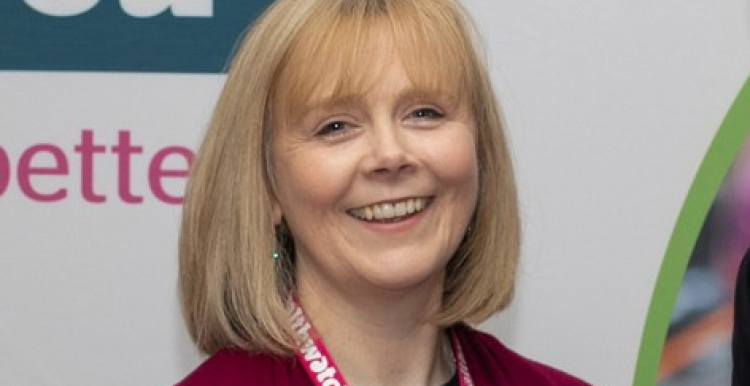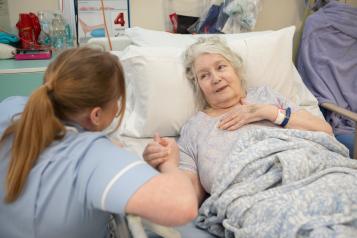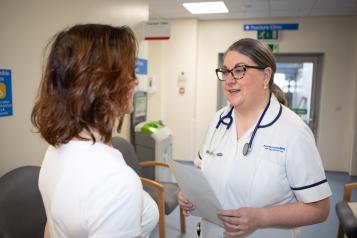Difficulties contacting patients and staff in hospital during the pandemic

We have been told that there have been problems getting through to wards and services. We have shared these experiences with Shrewsbury and Telford Hospital Trust (SaTH) and they have acknowledged the problems and told us about the measures they have put in place to try and help patients and their families.
Examples of what members of the public told us:
- “it took hours for the phone to be answered and would often be picked up and put down again. At times it was answered and I was told to phone later as they were too busy to speak to me.”
- The family of an older gentleman were not able to get through by phone to a ward in Royal Shrewsbury Hospital over the weekend about their father who was admitted on Friday with a temperature. He has multiple conditions like stroke and diabetes. They ended up having to comfort themselves with the thought that no news is good news. Finally got through on Sunday.
- “I was unable to get through to the AMU phone for 2hrs.”
The response from Shrewsbury and Telford Hospital Trust:
The Head of Nursing expressed the Trust’s “thanks to Healthwatch and our patients/families that have taken the time to feedback. Their input is paramount on our journey of improvement.”
A Matron told us that “we have had significant staffing shortfalls in ward clerk posts due to shielding and long-term sickness. We have been encouraging the staff to answer the phone as often as they can but this has proved difficult and it is something we are working on.”
“We have made some improvements to communication with relatives on the ward through the implementation of the relatives contact sheet, whereby the nurses assist the patients with contacting relatives and where this is not possible they are exploring ways of staff contacting relatives following the ward round and how they can logistically do that.”
The Trust told us about some of the measures that have been taken in an attempt to maintain communication between patients and those important to them:
- ‘Virtual Visiting’ iPads have been made available within all clinical areas across the Trust. The iPads support video calls between a patient and someone important to them through FaceTime or Microsoft Teams.
- Virtual visiting is available through iPhones held by the End-of-Life Care Team, the phones have access to FaceTime or Microsoft Teams but can also support other apps to facilitate calls.
- Volunteers were recruited to support patients in virtual visits however the pilot was stopped after a week due to the increase in Covid cases and volunteers being withdrawn from patient contact. This is something which continues to be reviewed however presently, due to the risk assessment it is not something we are in a position to resume at this stage.
- The Trust has purchased over 70 mobile telephones to support patients keeping in touch with those important to them. Whilst the majority of patients have their own phones or tablets this was not the case for all patients and the hospital mobile devices were obtained to support them in maintaining contact. All inpatient areas have been provided with devices, the number differing to reflect the size of the area.
- Redeployed staff are being utilised within 8 Wards across the Trust to help facilitate virtual visits and assisted calls on the mobile telephones to help patients maintain contact under the current Covid-19 restrictions. The redeployed staff are not on the Wards they support every day however this is making a difference and we have received positive feedback from the patients, those they contact, staff and the redeployed staff supporting the initiative.
- We also have ‘message to a loved one’ and the 'comfort pebble' initiatives in place to help people let a patient know that even though they can’t visit they are in someone’s thoughts.
Have these initiatives helped you keep in contact with your relative or friend? Have you been able to discuss their care and treatment with staff looking after them? Share your experiences with us so we can let the hospital know what is working well and what is not working so well.


